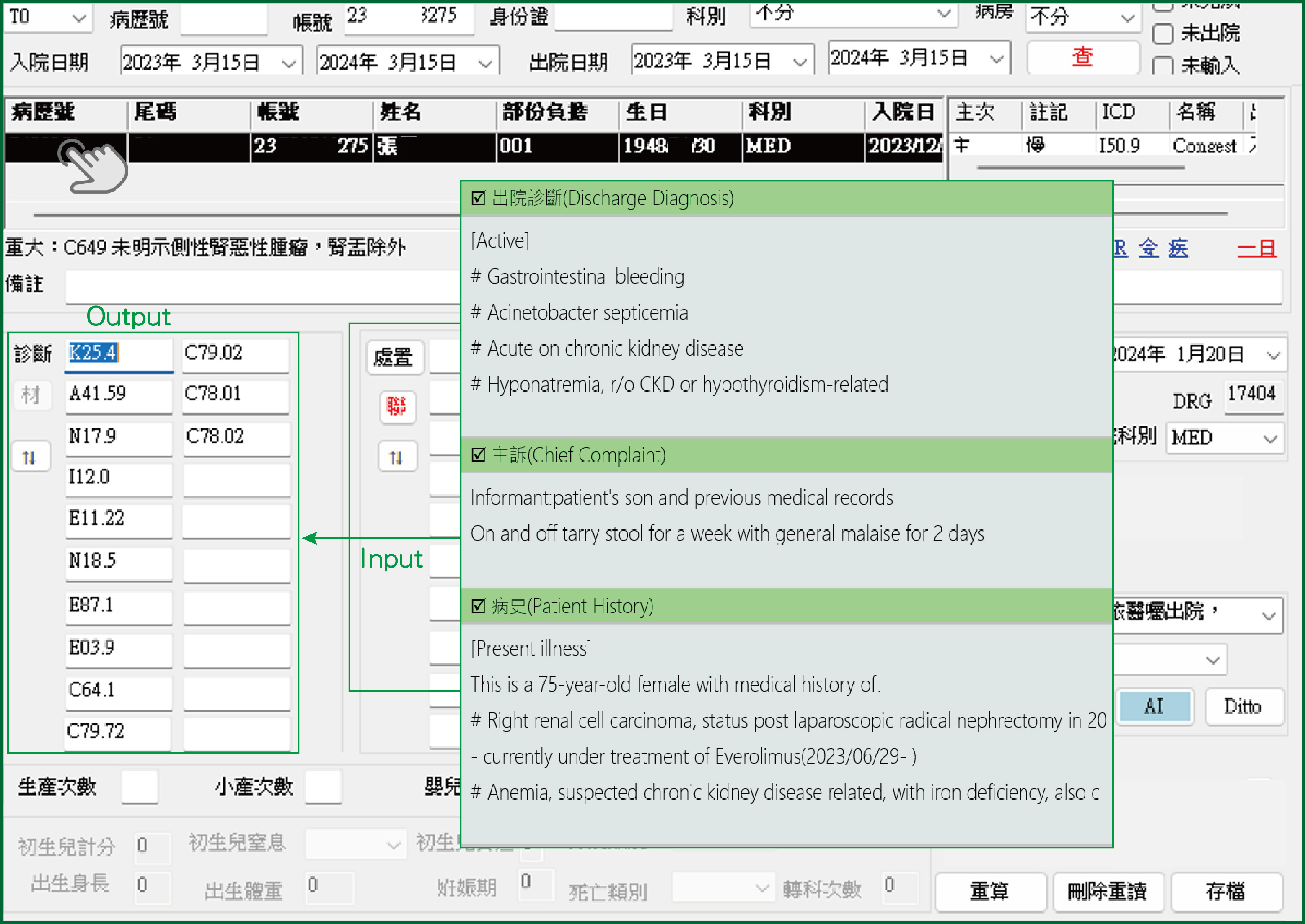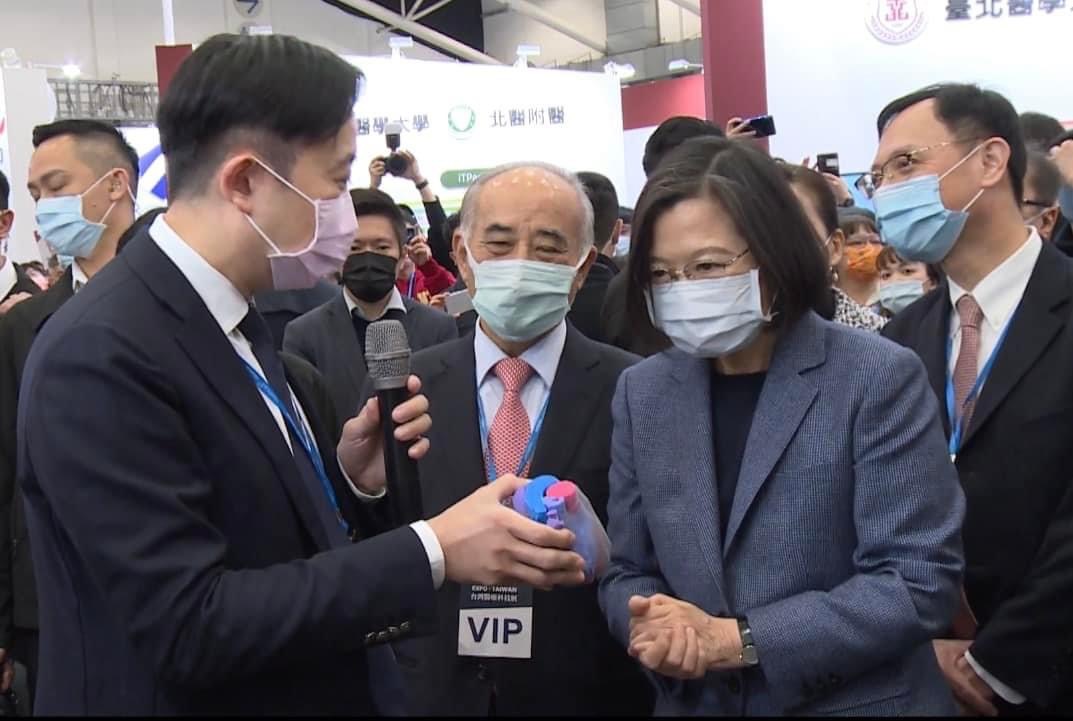Originally, if you were a doctor at National Taiwan University Hospital looking to integrate medical research with AI, you would likely have to leverage your own network to seek assistance from professionals or suppliers. However, with the establishment of the Center of Intelligent Healthcare, collaborations among doctors, professional engineers at the center, and the computer science scholars familiar with the latest technological developments are now possible to develop AI models.
For example, after a patient was discharged from the hospital, certified coding specialists previously had to spend an average of 15 minutes studying the patient’s medical records to find the correct ICD (International Classification of Diseases) codes for reporting to the national health insurance system. With the aid of the Center of Intelligent Healthcare, an ICD-Coding System was developed by fine-tuning large language model (LLM). The system immediately suggests ICD codes, which can then be confirmed by certified coding specialists, effectively reducing the operating time to just a few seconds. Furthermore, the center has developed another system to promptly determine the status of a Helicobacter pylori infection using imaging data, which is then passed on to the doctor for final diagnosis. This system is now deployed in the Matsu Islands, where medical resources are scarce, providing a professional doctor equivalent presence on the islands.
In addition to its own AI specialist team, the center also provides a matching platform service for medical teams and computer science experts to form R&D teams. The center has hosted numerous seminars and workshops to share the latest AI developments with hospital teams and inspired the imagination of medical professionals. Furthermore, to promote the use of AI research outcomes and tools in medical clinical settings, the center holds cross-departmental discussions with clinical teams, information technology office, legal department, and suppliers to form an integrated framework that meets patient privacy and information security requirements without compromising hospital system performance. This enables R&D results to be implemented in practice.
It is precisely due to this comprehensive integration of resources that the center can promote the practical applications of the AI-powered systems in the NTUH main hospital, NTUH branches, and other hospitals, as well as support medical research. Currently, several research projects have applied for patents reviews, received awards, and published papers, both domestically and internationally.

Smart ICD coding system

System for detecting Helicobacter pylori infection
 Grad-CAM visualized results for the detection of Helicobacter pylori infection
Grad-CAM visualized results for the detection of Helicobacter pylori infection
 President Tsai visiting the NTUH smart medical research results booth at the Healthcare+ Expo Taiwan
President Tsai visiting the NTUH smart medical research results booth at the Healthcare+ Expo Taiwan
 Exchange of smart medical research results with Mahidol University, Thailand
Exchange of smart medical research results with Mahidol University, Thailand